Qualcomm ‘strangled competition’, judge rules
Antitrust ruling strikes blow to tech giant’s business model and unnerves investors

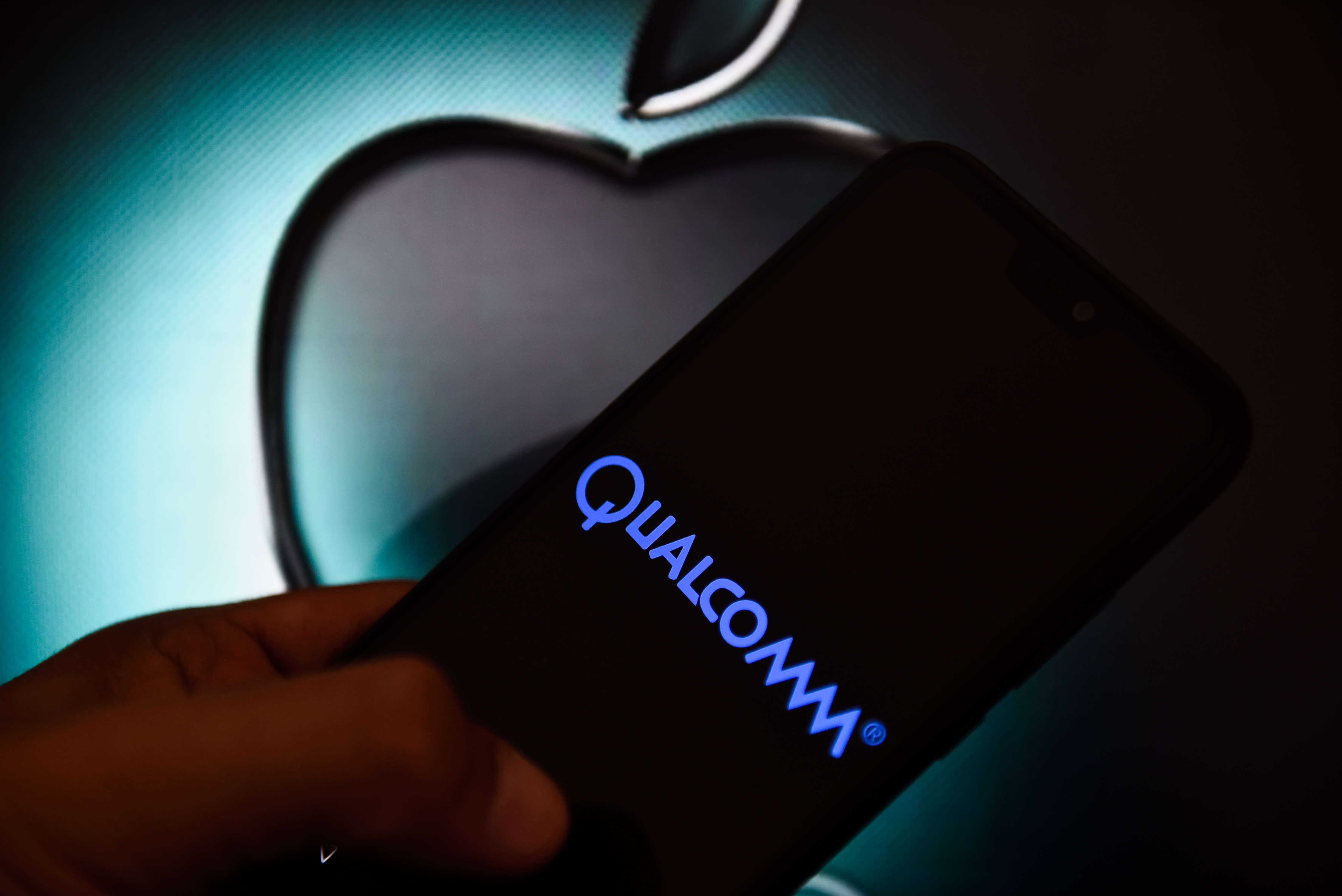
A free daily email with the biggest news stories of the day – and the best features from TheWeek.com
You are now subscribed
Your newsletter sign-up was successful
Qualcomm, the largest manufacturer of smartphone microchips and modems in the world, violated antitrust law and illegally “strangled competition”, a US federal judge in California has ruled.
Judge Lucy Koh’s decision followed a ten-day non-jury trial in January, and strikes at the foundations of the San Diego-based company’s business model. It could, Bloomberg speculates, even “upend the smartphone industry”.
Investors have been shaken, with the tech giant’s stocks plunging 11.4% on Wednesday in the wake of the news.
The Week
Escape your echo chamber. Get the facts behind the news, plus analysis from multiple perspectives.

Sign up for The Week's Free Newsletters
From our morning news briefing to a weekly Good News Newsletter, get the best of The Week delivered directly to your inbox.
From our morning news briefing to a weekly Good News Newsletter, get the best of The Week delivered directly to your inbox.
Qualcomm announced it would seek a stay on the ruling’s order that it immediately strike new licensing agreements, and launch an expedited appeal. “We strongly disagree with the judge’s conclusions, her interpretation of the facts and her application of the law,” the company’s general counsel, Don Rosenberg, said in a statement.
The suit was brought by the US Federal Trade Commission (FTC), an independent agency responsible for protecting consumers. It stated that Qualcomm charges licence fees for its patents that are inflated beyond industry standards, and does so deliberately to harm competitors.
Judge Koh agreed: “This evidence of Qualcomm’s intent confirms the court’s conclusion that Qualcomm’s practices cause anticompetitive harm because no monopolist monopolizes unconscious of what he is doing.”
Reuters describes how “Qualcomm argued during the trial that it achieved market dominance through technological leadership. The company began its licensing business in the 1980s and 1990s, decades before it began selling chips, and has charged broadly similar patent rates since then.”
A free daily email with the biggest news stories of the day – and the best features from TheWeek.com
The company also argued “that the FTC failed to show harm to competition, arguing that the chip industry is thriving and prices are declining”.
Nevertheless, reports The New York Times, as a result of her finding the judge “ordered Qualcomm to strike new licensing agreements without the onerous terms, and said that the company must submit to seven years of monitoring by the trade commission”.
As CNN outlines, this is not the only antitrust suit Qualcomm faces: “The ruling comes five weeks after Qualcomm reached a settlement in a similar but separate antitrust case brought by Apple (AAPL). That agreement included an unspecified payment from Apple to Qualcomm, and the two companies announced a six-year license contract under which Apple will continue to buy Qualcomm chips.”
The Financial Times contextualises this blow to Qualcomm, pointing out its timing at a sensitive moment in which the worlds of trade, technology and geopolitics are awkwardly entwined.
“The ruling comes as President Donald Trump seeks to position Qualcomm as a national champion, forming a vital bulwark against China’s Huawei in the transition to next-generation 5G mobile networks. The White House sees 5G - a new networking standard, in the development of which Qualcomm has played a central role - as a core component of US national security. The Trump administration has pushed other countries to keep Huawei’s equipment out of their mobile infrastructure,” says the newspaper.
William Gritten is a London-born, New York-based strategist and writer focusing on politics and international affairs.
-
 How the FCC’s ‘equal time’ rule works
How the FCC’s ‘equal time’ rule worksIn the Spotlight The law is at the heart of the Colbert-CBS conflict
-
 What is the endgame in the DHS shutdown?
What is the endgame in the DHS shutdown?Today’s Big Question Democrats want to rein in ICE’s immigration crackdown
-
 ‘Poor time management isn’t just an inconvenience’
‘Poor time management isn’t just an inconvenience’Instant Opinion Opinion, comment and editorials of the day
-
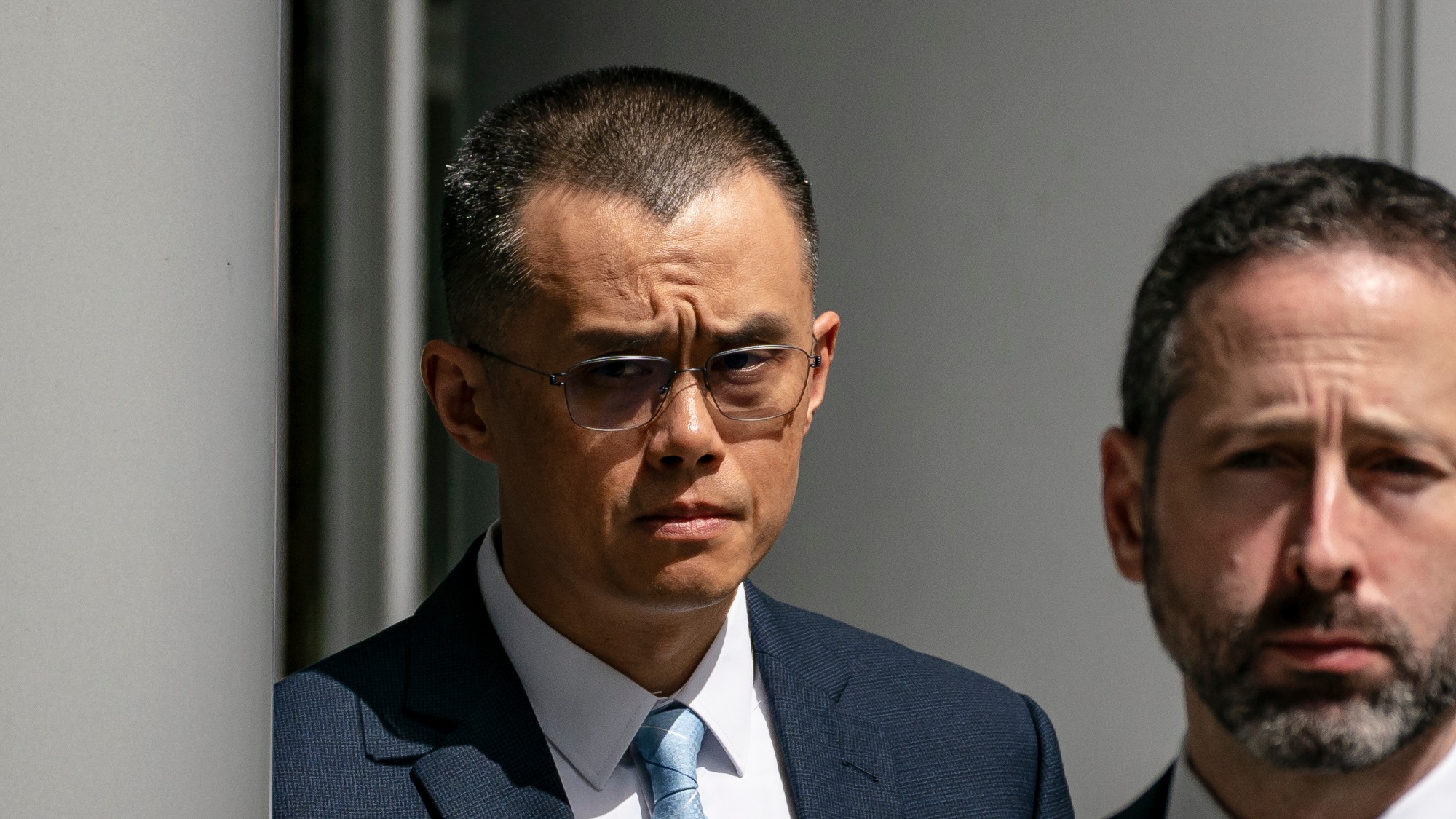 Why Trump pardoned crypto criminal Changpeng Zhao
Why Trump pardoned crypto criminal Changpeng ZhaoIn the Spotlight Binance founder’s tactical pardon shows recklessness is rewarded by the Trump White House
-
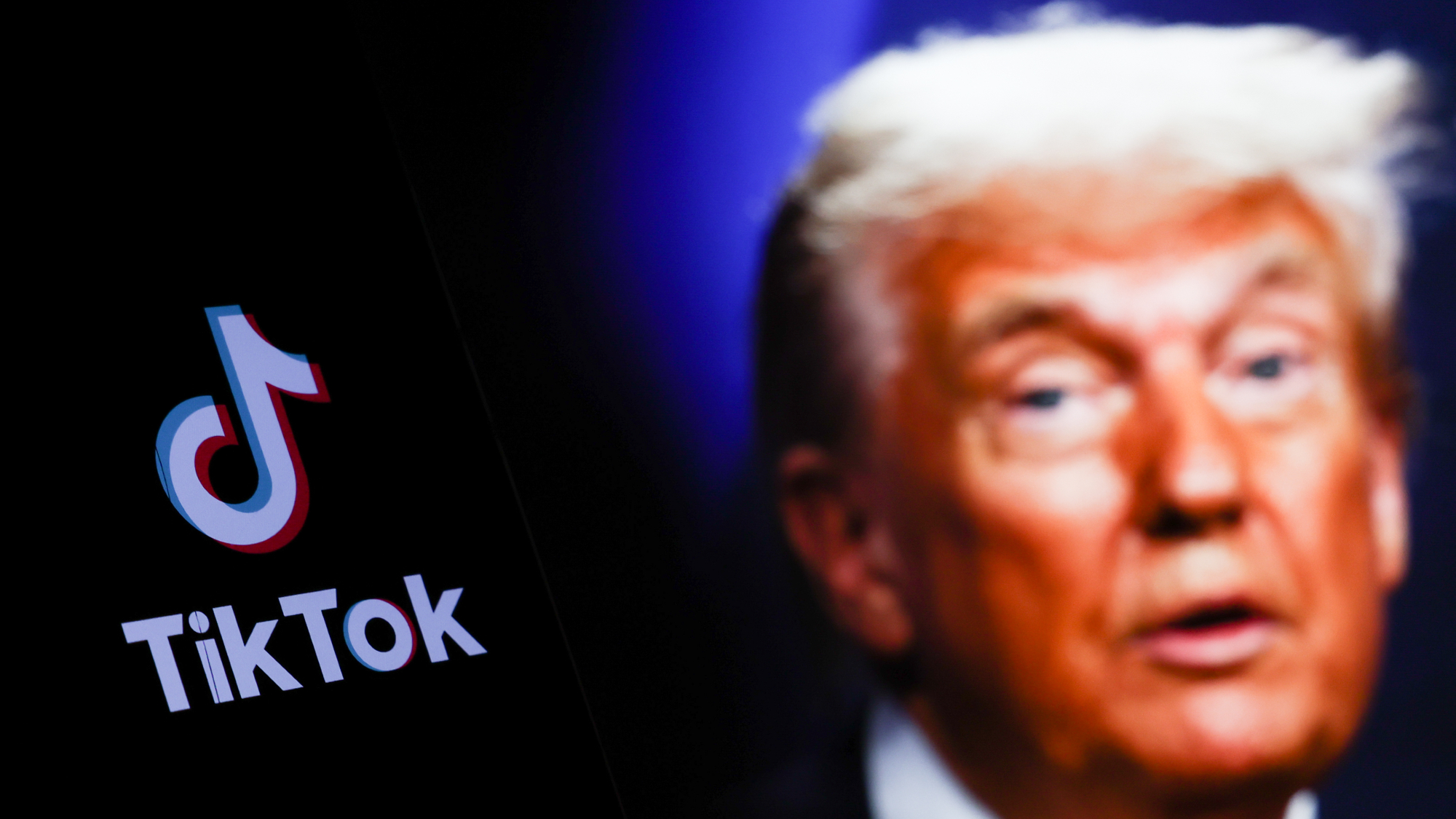 Trump allies reportedly poised to buy TikTok
Trump allies reportedly poised to buy TikTokSpeed Read Under the deal, U.S. companies would own about 80% of the company
-
 The noise of Bitcoin mining is driving Americans crazy
The noise of Bitcoin mining is driving Americans crazyUnder the Radar Constant hum of fans that cool data-centre computers is turning residents against Trump's pro-cryptocurrency agenda
-
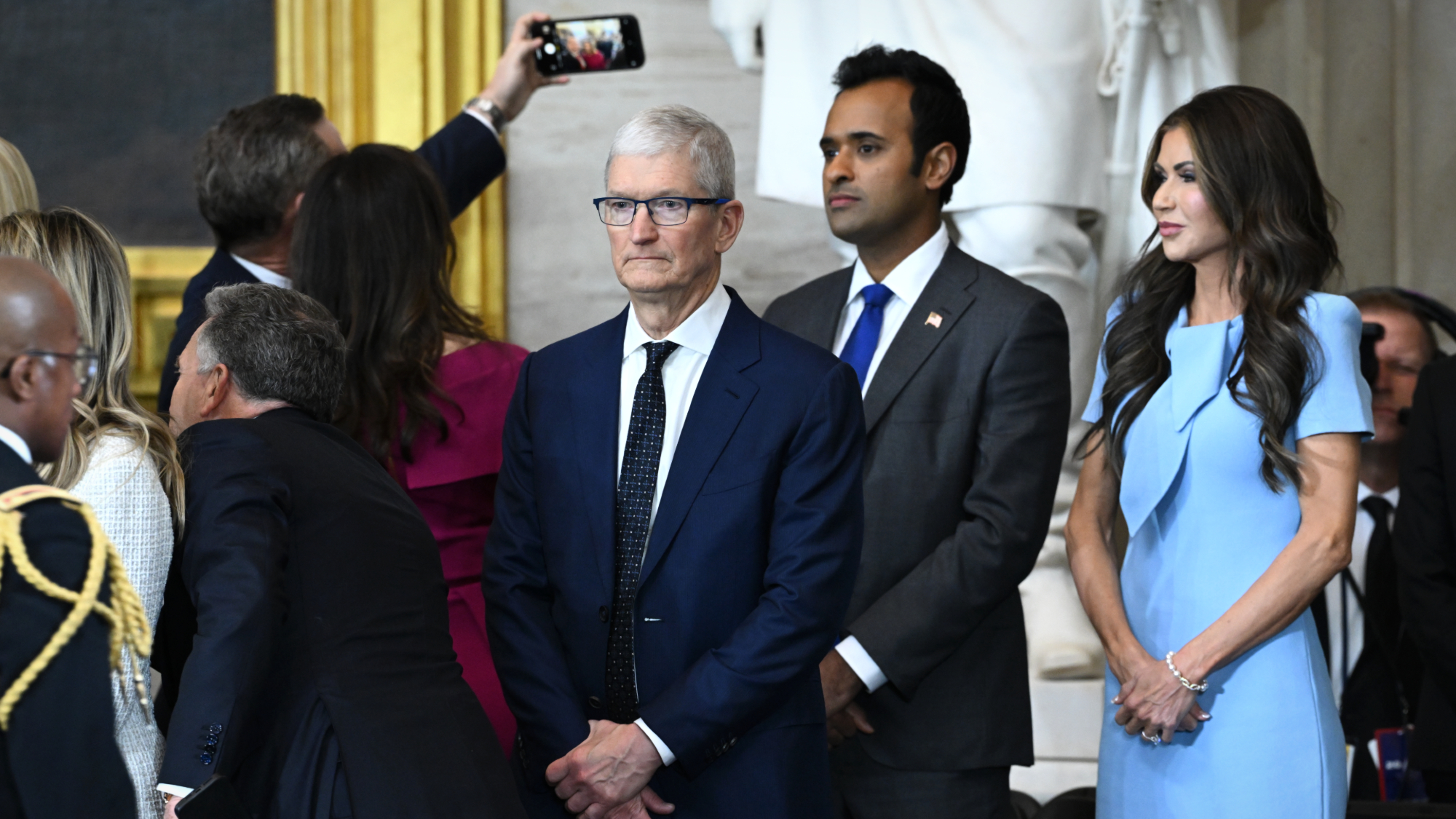 Apple pledges $500B in US spending over 4 years
Apple pledges $500B in US spending over 4 yearsSpeed Read This is a win for Trump, who has pushed to move manufacturing back to the US
-
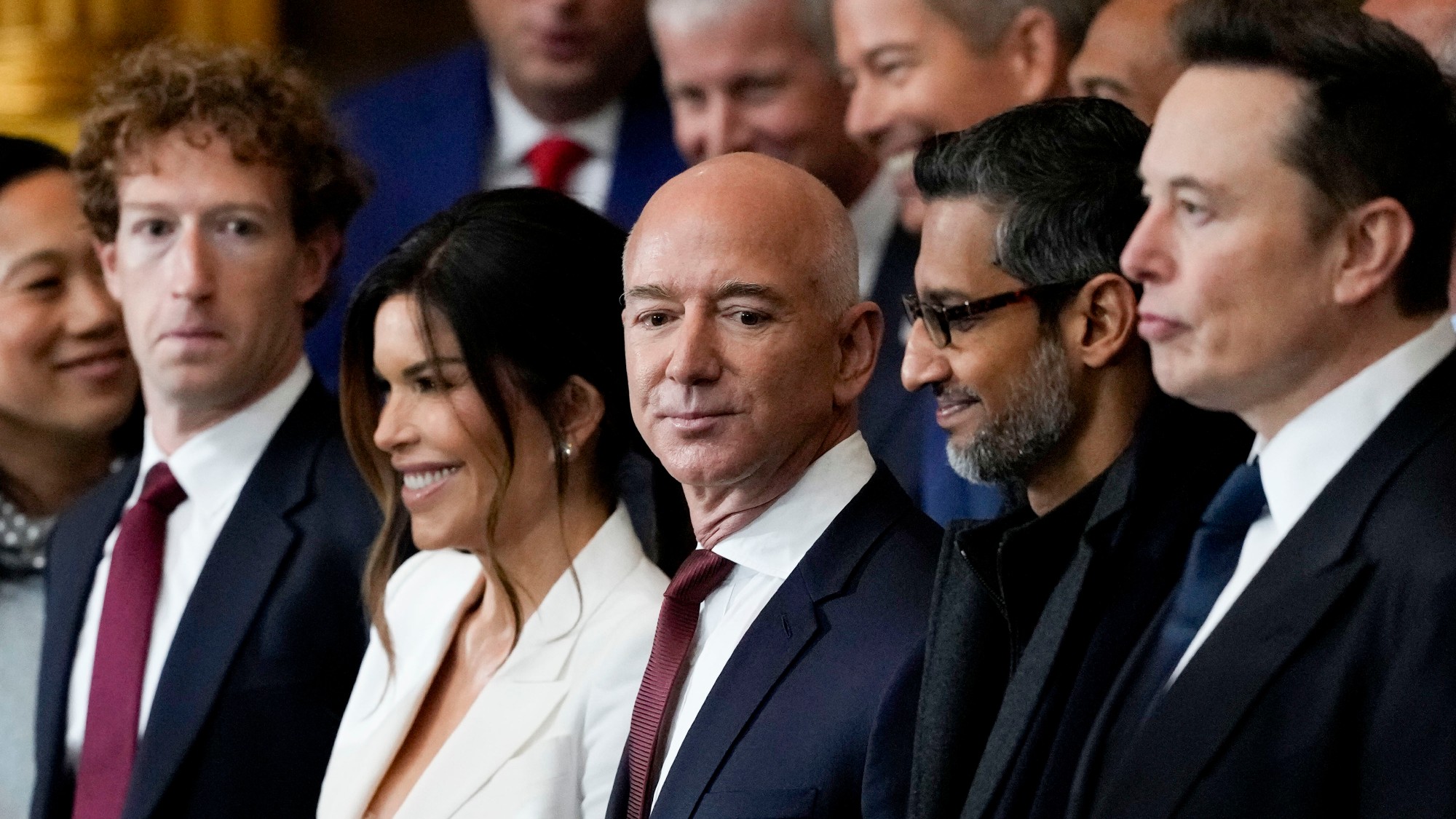 What Trump's 'tech bros' want
What Trump's 'tech bros' wantThe Explainer Elon Musk, Mark Zuckerberg and Jeff Bezos had 'prime seats' at the president's inauguration. What are they looking to gain from Trump 2.0?
-
 Big tech's big pivot
Big tech's big pivotOpinion How Silicon Valley's corporate titans learned to love Trump
-
 What Trump's win could mean for Big Tech
What Trump's win could mean for Big TechTalking Points The tech industry is bracing itself for Trump's second administration
-
 Racist texts tell Black people in US to prepare for slavery
Racist texts tell Black people in US to prepare for slaverySpeed Read Recipients in at least a dozen states have been told to prepare to 'pick cotton' on slave plantations
